April 04, 2019
Mobile Service Available to Help Those in Caroline County and other Eastern Shore Counties in Need of Addiction Treatment
Health and addiction treatment officials from the Caroline County Health Department, Maryland Department of Health, the Maryland Opioid Operational Command Center, and the University of Maryland School of Medicine (UMSOM) in Denton, MD., launched the Eastern Shore Mobile Care Collaborative (ESMCC), a mobile system designed to provide state-of-the-art treatment for opioid disorders for those in need on the Maryland Eastern shore.
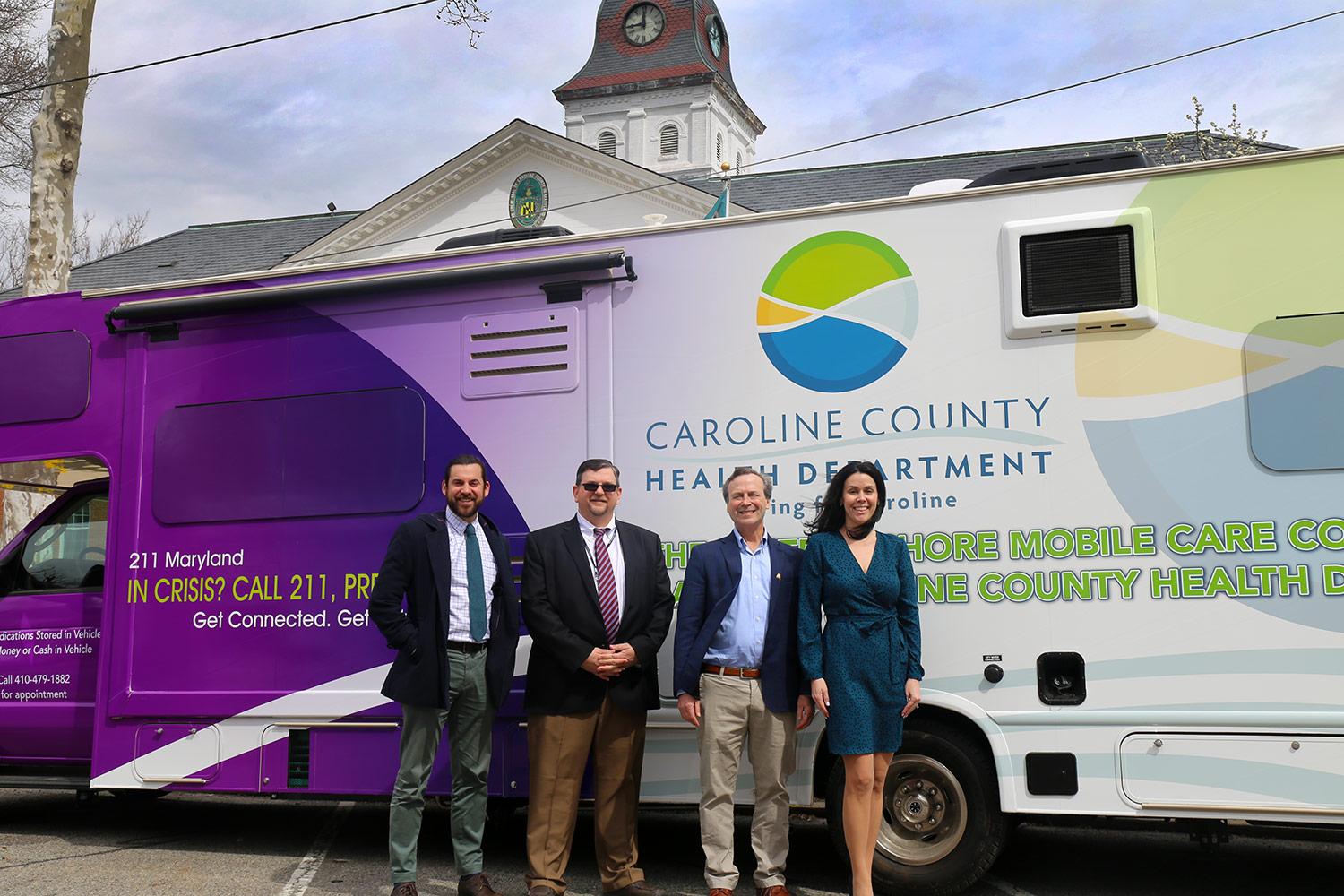
University of Maryland School of Medicine Addiction Treatment Experts help launch
the Eastern Shore Mobile Care Collaborative with officials from Caroline County
The program is centered around a Mobile Treatment Unit (MTU), and it is designed to increase access to life saving medication-based treatment for individuals with opioid use disorders in underserved rural communities. It is believed to be the first MTU in the country that has the capacity to provide access to these medication-based treatments to these individuals through videoconferencing.
Learn More:
The ESMCC builds upon a commitment among local health officials and UMSOM addiction experts to provide service to those in need in the most rural parts of the state.
The service provided in the MTU will be a combination of on-site diagnosis and treatment with medication-based treatment for opioid addiction via telemedicine to patients located on Maryland’s eastern shore.
The telemedicine program is administered by Eric Weintraub, MD, Associate Professor in the Department of Psychiatry, who is the Medical Director of the UMSOM’s Methadone Clinic in the University of Maryland Medical Center (UMMC) Outpatient Addiction Treatment Services, and Christopher Welsh, MD, Associate Professor in the Department of Psychiatry, who is the Medical Director of the UMMC Substance Abuse Consultation Service and Medical Director of the UMMC Outpatient Addiction Treatment Service.
“With telemedicine, we can treat those in need of addiction treatments in the most rural parts of the state, where often times services are not available. Our telemedicine program has been successful in other parts of Maryland, and we think this combined mobile service in Caroline County makes treatment even more accessible as we tackle opioid disorders,” said Dr. Weintraub.
Dr. Weintraub and Dr. Welsh have been providing similar services in Western Maryland for the past three years in collaboration with the University of Maryland Medical System (UMMS). Through this program Dr. Weintraub and Dr. Welsh and other faculty can prescribe buprenorphine via their telemedicine program. The procedure includes a video consultation and collaboration with counselors and others treating the patient locally.
“With this new service, we can now reach those in need and provide important addiction treatment to individuals in some of the most rural parts of the county, where there is limited transportation and access to care,” said Scott T. LeRoy MPH, MS, Caroline County Health Officer. “This mobile care unit will be able to serve our residents that are most in need of these valuable services.”
The nearly 36-foot unit, which was onsite at the launch, is equipped with medical supplies and telecommunication devices. It is staffed by a nurse and peer recovery specialist. The MTU is linked via encrypted and HIPAA compliant videoconferencing technology to an addictions medicine specialist at the School of Medicine in Baltimore, who can then provide point-of-care diagnosis at the initial visit and monitoring during follow-up visits at the Caroline County Health Department.
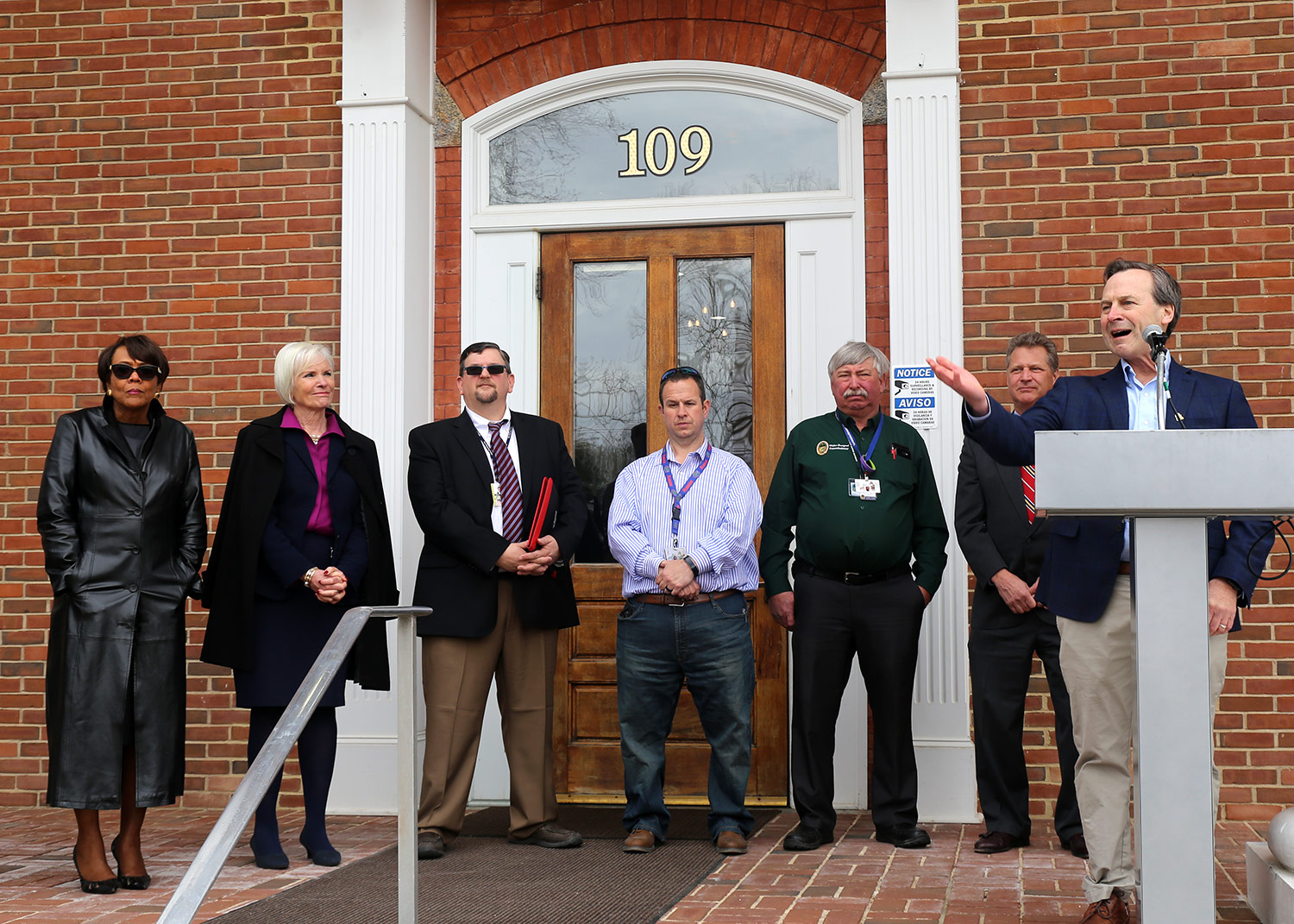
Dr. Eric Weintraub speaks at a press conference for the launch of the ESMCC. Behind him from left to right: Barbara Bazron, PhD, Deputy General Secretary for Behavioral Health, Maryland Department of Health; Frances Phillips, Deputy Secretary of Public Health Services, Maryland Department of Health; Scott LeRoy, MPH, Caroline County Health Officer; Caroline County Commissioner and Vice President, Daniel Franklin; Caroline County Commissioner Wilbur Levengood, Jr.; Caroline County Commissioner and President Larry Porter; and Steve Schuh, Executive Director, Maryland Opioid Operational Command Center.
“This is a big deal for us. Healthcare access, and in particular, transportation, is a major problem for us,” said Caroline County Commissioner, Larry C. Porter.
This mobile unit is part of a bigger program across the state to address the growing need for addiction treatment in rural parts of Maryland, using a combination of on-site care and telemedicine to treat addiction disorders and provide necessary guidance for on-going care and counseling.
“We’re hoping that this is the model for the rest of the state of Maryland,” said Steve Schuh, Executive Director, Maryland Opioid Operational Command Center.
Support for the Mobile Unit was provided by the Maryland Department of Health, Behavioral Health Administration.
Funding for the Eastern Shore Mobile Care Collaborative at Caroline County Health Department was made possible by Health Resources & Services Administration (HRSA) of the U.S. Department of Health and Human Services (HHS); University of Maryland School of Medicine, State of Maryland Department of Health and the Caroline County Health Department.
A Serious Addiction Issue
This new mobile service in Caroline County and Eastern shore counties is a critical addition to the services needed as Maryland faces increasing opioid-related deaths. According to the Maryland Department of Health, there was a 14.8 percent increase in opioid-linked deaths during the first half of 2018 from 2017, a trend that has been in place for several years. The bulk of these deaths is linked to fentanyl use, a high-potency synthetic opioid.
Rural counties have experienced opioid-related deaths. Importantly, medication-assisted treatment with drugs such as methadone and buprenorphine — considered the evidence-based treatment of choice for managing addiction — is not always available to those in rural areas. The ESMCC aims to address the problem by providing these important treatments with the MTU.
About the Caroline County Health Department
The Caroline County Health Department, a local office of the Maryland Department of Health, is dedicated to the preservation and advancement of the lifelong Health and Wellness of our County's residents and environment.
The Health Department provides a wide array of public health services including behavioral health support, same-day substance use recovery services and prevention services for residents and other clients. To learn more visit https://www.carolinehd.org.
About the University of Maryland School of Medicine
Now in its third century, the University of Maryland School of Medicine was chartered in 1807 as the first public medical school in the United States. It continues today as one of the fastest growing, top-tier biomedical research enterprises in the world -- with 43 academic departments, centers, institutes, and programs; and a faculty of more than 3,000 physicians, scientists, and allied health professionals, including members of the National Academy of Medicine and the National Academy of Sciences, and a distinguished recipient of the Albert E. Lasker Award in Medical Research. With an operating budget of more than $1 billion, the School of Medicine works closely in partnership with the University of Maryland Medical Center and Medical System to provide research-intensive, academic and clinically-based care for more than 1.2 million patients each year. The School has over 2,500 students, residents, and fellows, and more than $530 million in extramural funding, with most of its academic departments highly ranked among all medical schools in the nation in research funding. As one of the seven professional schools that make up the University of Maryland, Baltimore campus, the School of Medicine has a total workforce of nearly 7,000 individuals. The combined School and Medical System (“University of Maryland Medicine”) has an annual budget of nearly $6 billion and an economic impact more than $15 billion on the state and local community. The School of Medicine faculty, which ranks as the 8th highest among public medical schools in research productivity, is an innovator in translational medicine, with 600 active patents and 24 start-up companies. The School works locally, nationally, and globally, with research and treatment facilities in 36 countries around the world. Visit medschool.umaryland.edu/
Learn more about the UMSOM’s addiction and treatment services:
UMMC Outpatient Addiction Treatment Services
701 W. Pratt Street
Baltimore, MD 21201
http://easternshoremobilecare.org
Contact
Office of Public Affairs
655 West Baltimore Street
Bressler Research Building 14-002
Baltimore, Maryland 21201-1559
Contact Media Relations
(410) 706-5260
Related stories
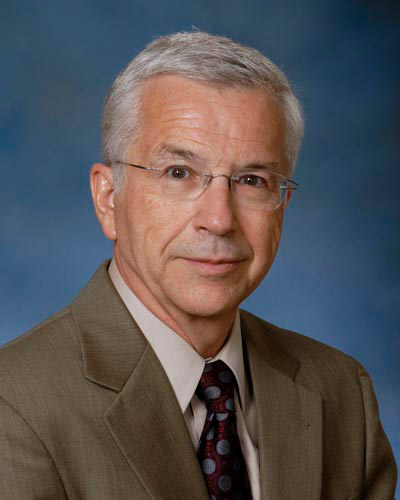
Tuesday, May 10, 2022
Longtime Academic and Clinical Affairs Leader, Department Chair, and Faculty Member, Tony Lehman, MD, Announces Retirement
University of Maryland School of Medicine (UMSOM) Dean E. Albert Reece, MD, PhD, MBA, announced today that Anthony Lehman, MD, MSPH, who served the UMSOM for more than 30 years as Senior Associate Dean for Clinical Affairs, Department Chair, and distinguished faculty member in the UMSOM Department of Psychiatry, will retire, effective June 30, 2022.
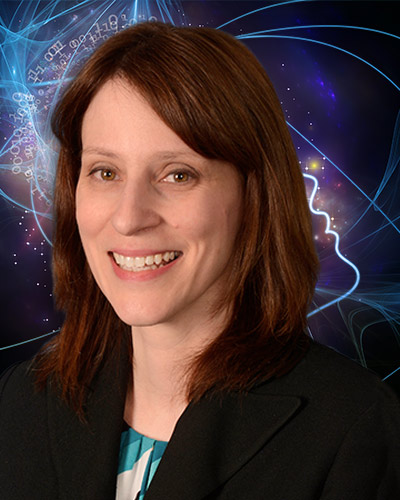
Thursday, February 27, 2020
UMSOM Department of Psychiatry Creates New Position to Strengthen and Support Research Program
Jill RachBeisel, MD, Interim Chair of the Department of Psychiatry at the University of Maryland School of Medicine (UMSOM), along with UMSOM Dean E. Albert Reece, MD, PhD, MBA, announced today that Gloria Reeves, MD, Associate Professor of Psychiatry, has been appointed to serve as the Vice Chair for Research of the Department.
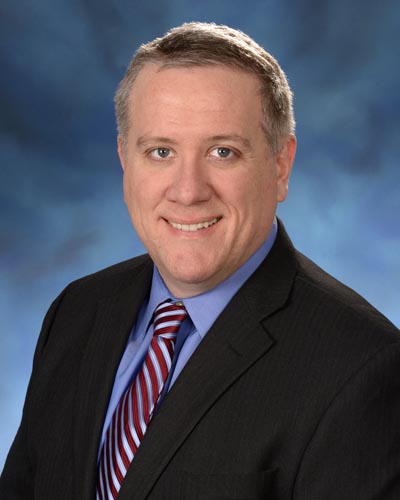
Thursday, January 16, 2020
University of Maryland School of Medicine Research Shows That Older Patients With Untreated Sleep Apnea Need Greater Medical Care
Obstructive sleep apnea (OSA) is a common and costly medical condition leading to a wide range of health risks such as cardiovascular disease, stroke, depression, diabetes and even premature death. Researchers at the University of Maryland School of Medicine (UMSOM) found that the medical costs are substantially higher among older adults who go untreated for the disorder.
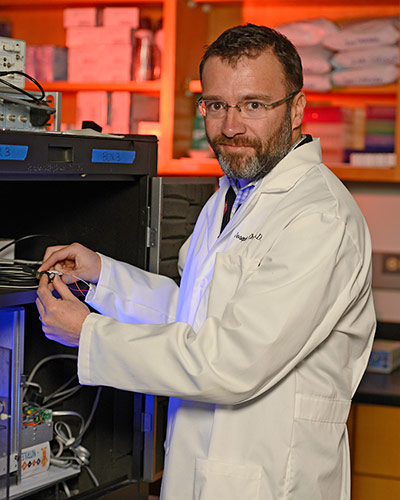
Wednesday, October 16, 2019
Researchers Discover Potential Therapy to Treat Detrimental Effects of Marijuana in Pre-Adolescent Individuals Exposed to THC in Womb
As a growing number of U.S. states legalize the medicinal and recreational use of marijuana, an increasing number of American women are using cannabis before becoming pregnant and during early pregnancy often to treat morning sickness, anxiety, and lower back pain. Although emerging evidence indicates that this may have long-term consequences for their babies’ brain development, how this occurs remains unclear.
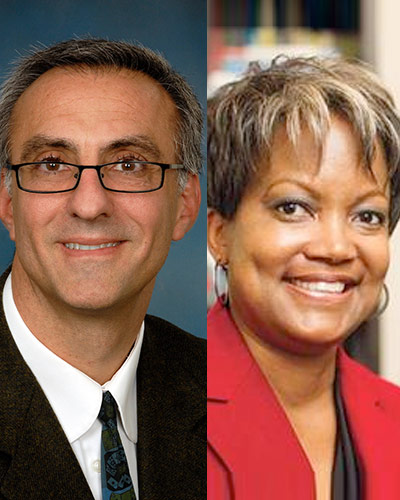
Thursday, May 16, 2019
Dr. Christopher Welsh (SOM, UMMC) and Dr. Michelle Gourdine (UMMS) have been appointed to an opioid addiction working group by Baltimore County Executive Johnny Olszewski.
Expert working group will lead public engagement effort to gather input and develop recommendations
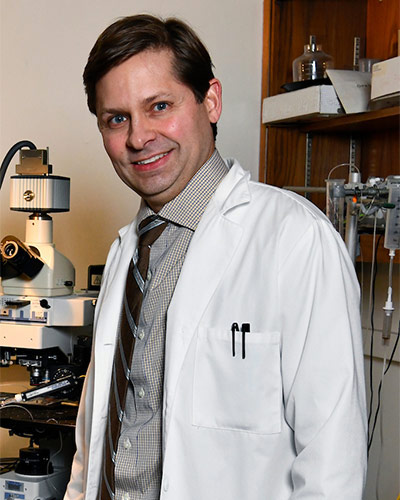
Wednesday, March 27, 2019
UMSOM Researchers Discover a Critical Receptor Involved in the Response to Fast-Acting Antidepressants Like Ketamine
Effective treatment of clinical depression remains a major mental health issue, with roughly 30 percent of patients who do not respond to any of the available treatments. Researchers at the University of Maryland School of Medicine (UMSOM) have discovered a crucial receptor called mGlu2 that is critical to the mechanism of fast-acting antidepressants such as ketamine when used to treat depression.
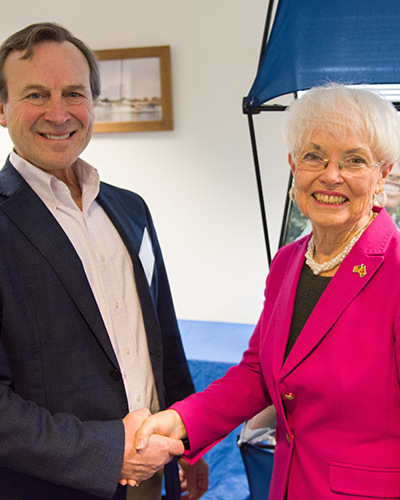
Wednesday, January 23, 2019
UMSOM'S Opioid Addiction Treatment Experts Receive Funding from CareFirst for Telemedicine Network
Addiction experts at the University of Maryland School of Medicine (UMSOM) received a $212,171 grant from CareFirst to expand access to medication assisted treatment (MAT) for opioid addiction via telemedicine to patients located on Maryland’s eastern shore.
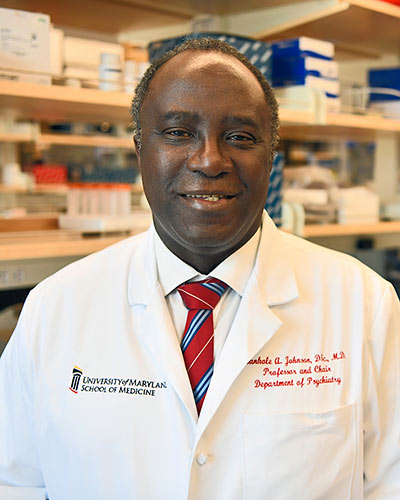
Tuesday, October 16, 2018
Bankole A. Johnson Receives Prestigious American Society of Addiction Medicine Award
Bankole Johnson, DSc, MD, the Dr. Irving J. Taylor Professor and Chair of the Department of Psychiatry at the University of Maryland School of Medicine (UMSOM), has been named to receive the American Society of Addiction Medicine’s (ASAM) R. Brinkley Smithers Distinguished Scientist Award.

Tuesday, August 21, 2018
New Wave of Complex Street Drugs Puzzles Emergency Doctors
Study May Fuel Need for More Comprehensive Drug Testing in Hospitals
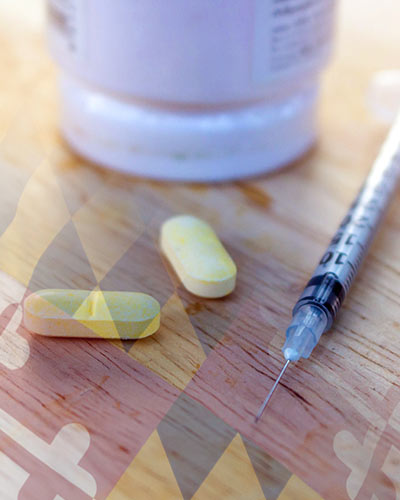
Friday, January 05, 2018
Fighting Opioid Addiction from Baltimore to Garrett County: University of Maryland School of Medicine Rises to the Challenge
The opioid epidemic has been deadly for Maryland. In 2016, more than 2000 people in the state died from overdoses; in 2017, deaths rose another 40 percent, and deaths from the powerful synthetic opioid fentanyl were up nearly 140 percent. Last year, Gov. Larry Hogan declared a state of emergency in response to the opioid epidemic, saying the state needs an “all-hands-on-deck approach.”
Wednesday, June 07, 2017
Dr. Jill RachBeisel Named Vice Chair for Clinical Affairs in UM School of Medicine’s Department of Psychiatry
Bankole A. Johnson, DSc, MD, MBChB, The Dr. Irving J. Taylor Professor and Chair for the Department of Psychiatry, Professor of Pharmacology, Anatomy and Neurobiology, along with UM SOM Dean E. Albert Reece, MD, PhD, MBA, announced today that Jill RachBeisel, MD, Associate Professor of Psychiatry, has been named Vice Chair for Clinical Affairs for the UM SOM Department of Psychiatry, commencing at the start of the next academic year.
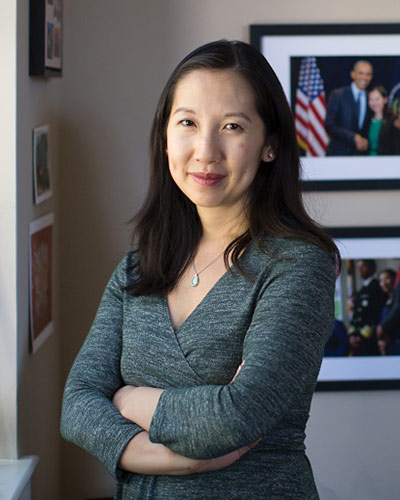
Friday, April 29, 2016
Baltimore City Health Commissioner Speaks at University of Maryland School of Medicine Addiction Conference
Baltimore City Health Commissioner Leana Wen and other experts recently addressed ways to decrease the epidemic of opioid overdose deaths at a conference on mental health and addiction.
